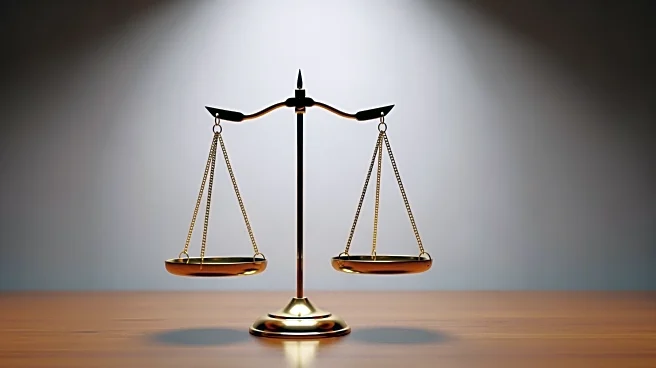What's Happening?
Prime Minister Keir Starmer has declined to reaffirm his manifesto commitments not to raise key taxes at the upcoming Budget. During Prime Minister's Questions, Starmer did not repeat his promise to avoid increasing income tax rates, VAT, or National
Insurance, leading to speculation that tax rises may be imminent. Conservative leader Kemi Badenoch criticized Starmer, suggesting that Labour is unable to control public spending. The Chancellor, Rachel Reeves, is expected to announce tax increases to address a Budget shortfall, despite previous assurances that tax promises would be upheld.
Why It's Important?
The potential breaking of tax pledges is significant as it could impact public trust in Starmer's government and its ability to deliver on election promises. Raising taxes may be necessary to address economic challenges, but it risks alienating voters who supported Labour based on its manifesto commitments. The situation highlights the tension between fiscal responsibility and political promises, with implications for the government's credibility and future electoral prospects.
What's Next?
The government is expected to outline its plans at the Budget on 26 November, which will clarify its approach to tax policy. The decision to raise taxes could lead to political backlash and require careful management to maintain public support. Labour may need to justify any changes to its tax policy by emphasizing the necessity of addressing economic challenges and ensuring long-term fiscal stability.
Beyond the Headlines
The debate over tax policy reflects broader economic challenges facing the UK, including weak growth and the need for fiscal reform. The government's approach to taxation will be closely scrutinized, with potential implications for economic policy and public perception of Labour's ability to govern effectively.















